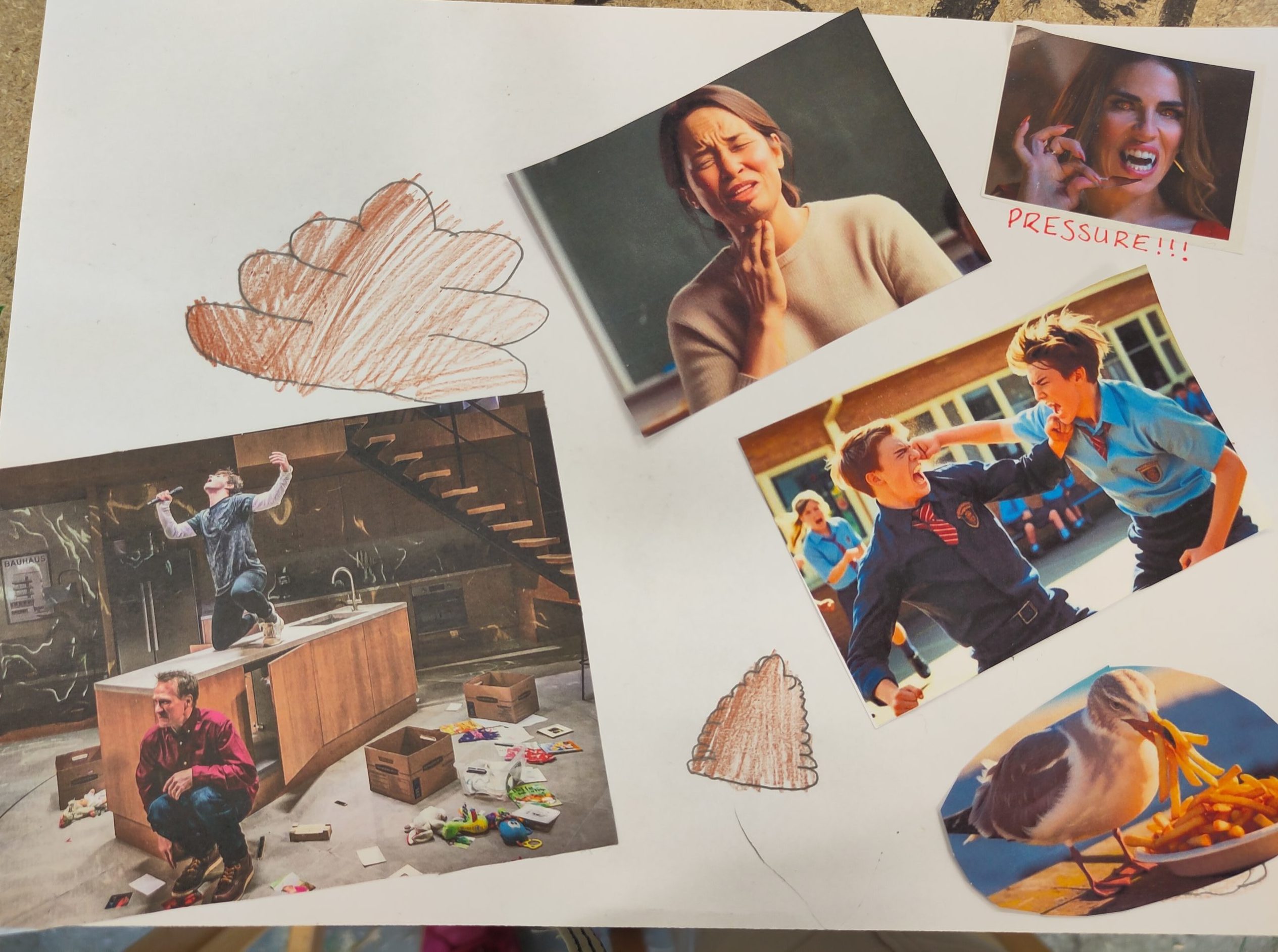Dr Kristin Liabo, Beccy Summers, and Professors Heike Roms, and Kerrie Schaefer discuss insights gained from recent work supported by the Engaged and Participatory Research Fund. This project collaborated with staff and students to identify strategies for supporting engagement with school-based education.
Amount of award: £2750
Combining health, education, and arts-based research, this interdisciplinary project investigates possible approaches for combatting emotionally based school avoidance (EBSA). There is as yet little scholarship on EBSA, but it affects a small, but growing number of students. This project was conducted with the young people affected by EBSA, and explored how creative approaches can support students to reflect on and improve their experiences of education.
In partnership with a state secondary school in Devon, we ran four collaborative workshops. We worked with young people with EBSA, the school’s support staff, and with an arts facilitator (Helen Gilbert, MED Theatre) to collaboratively shape the workshops. The sound design was supported by Communications, Drama and Film’s technical team (Freya Hadow).
Two of these were held at the school, where students mapped and recorded sounds linked to their school experience. The other two were hosted at the University, where students worked in a sound studio to create a soundscape and accompanying visuals expressing their current experiences of school and their desired changes to this environment.
By incorporating these different voices, the project deepened our understanding of students’ experiences and sensitised us to their cultural reference points. It also allowed us to explore possible collaborations between the university’s engaged health researchers and those working in participatory theatre and performance.
At the workshops, young people voiced their ideas and experiences in innovative ways, including drawing and collage, spatial mapping, sound recordings and sound design. The university visits introduced them to higher education as a place of creative learning, raised awareness among school staff about university options, and strengthened school-university partnerships, with the potential to inform future collaborative research.
When conducting these activities, a key concern was designing workshops that felt safe and engaging for students experiencing EBSA. We were pleased that students who already face challenges attending school remained engaged with the project, and there was particular enthusiasm visiting the university. Using sound-based creative facilitation worked well in making participation accessible and meaningful, and provided an outlet for students to indirectly explore their feelings about school. This ensured it was easier and safer for students to express their experiences. By creating a concrete output, such as a soundtrack or music video, they were also able to go on and share this with others.
We also learned that students who experience EBSA are a diverse group, and no single approach works for everyone. Flexibility proved essential: allowing students at times to sit out and observe ensured the workshops remained supportive and effective for everyone.
Overall, this project has helped us to explore research grounded in students’ lived experience of school. Members of the team will use the knowledge gained in the project to develop further research into school-based anxiety and student views of their school environments, with the hopes of identifying pathways that will improve relationships with education.
You can listen to the soundtrack created through this project here.

